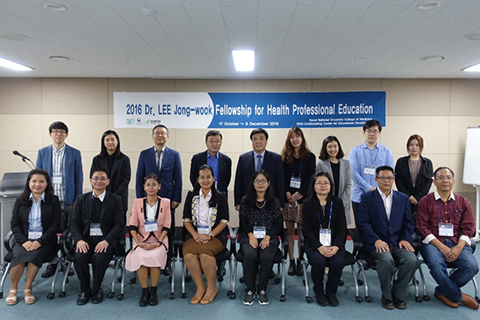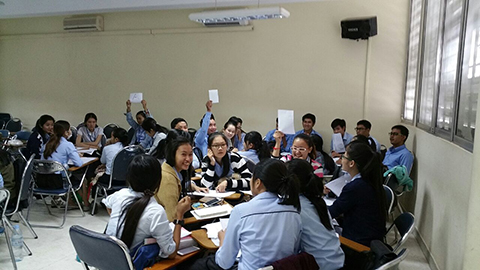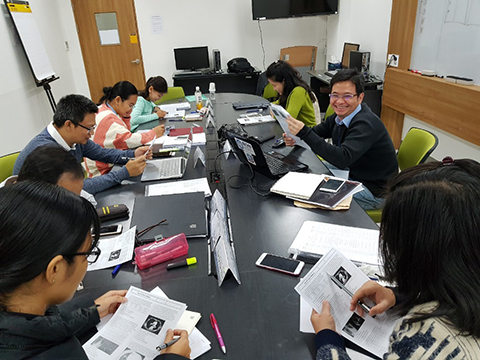
SEOUL - Comprehensive approaches for improving and scaling health professions education are essential to supporting and advancing health-system performance. To achieve universal coverage of quality health services the focus must shift from producing more health professionals towards transforming the quality and relevance of health professional education. Unfortunately, health profession’s education has not kept pace with the evolving epidemiological and socio-demographic trends. A critical bottleneck has been the lack of faculty members competent to educate the next generation of health professionals.
To address this gap, the National Teacher Training Center (NTTC) at Seoul National University College of Medicine, a WHO Collaborating Centre for Educational Development, has been working closely with the World Health Organization to provide in-country support. NTTC has been working with health professional institutions to promote and support educational development and strengthen capacity of educators.
In August 2016, the Center started the Dr. Lee Jong-wook Fellowship that invited seven health profession educators from Cambodia and Myanmar. The participants ranged from the dean of a nursing school to a lecturer from a medical university. The participants undertook a two-month intensive course on health professional education at the Seoul National University College of Medicine.
The course content covered comprehensive range of topics, which included a focus on transformative learning and teaching process, assessment, educational administration and leadership, quality assurance and policy formulation. Educators and organizational development experts in the Republic of Korea were invited to share their knowledge and experience with the participants. The participants were encouraged to provide feedback on the course content, including suggestions on topics to be covered in future schedules. In addition, the participants had the opportunity to attend the 2016 Asia-Pacific Joint Conference for Problem-Based Learning (PBL) organized by the Asia-Pacific Association of PBL in Health Sciences.
Based on prior experience, it is expected that the current fellowship will address critical capacity gaps of health profession educators and introduce good practices. For instance, in 2014, in consultation with the WHO Regional Office, the WHO CC had organized the Seoul Intensive Course for Medical Educators (SICME) to address similar issues related to health professions education. Sixteen professors from Cambodia, Lao People's Democratic Republic, Mongolia, Myanmar and Viet Nam were invited to the Republic of Korea for a six-week course on medical education. The participants were educated on various aspects of medical education and health professional development. Following the completion of the course, the participants have been successful in introducing newer practices upon return to their home countries. For example, most of the participants have been hosting medical education workshops on topics such as student assessment, curriculum development, accreditation, and evaluation of teaching and learning for the benefit of their fellow educators such as the Student Assessment Development Project in Viet Nam. This project offers a 4-day course on various assessment methods for medical educators with less than two-year experience, taught by the returning participants.

Encouraging changes are already beginning to take shape following the Dr. Lee Jong-Wook Fellowship. Since their return, participants have been applying their newly acquired knowledge. For instance, in Cambodia, the University of Health Sciences is including Research Methodology for Pharmacist in its existing curriculum for the Bachelor’s degree in Pharmacy. The curriculum change is expected to be implemented at the start of the next academic year. In addition, the participants are also organizing PBL and Team-Based Learning (TBL) workshops for their colleagues, besides using these skills in their individual classes.
Health professions educators are a valuable asset for all educational institutions, as agents of knowledge transmission and role models for students. Additionally, preparing a health workforce capable of providing high-quality, patient-centered care requires motivated and competent educators. Thus investment in building the capacity of the educators is critical to ensure that they can impart their roles effectively and efficiently. Correspondingly, education reform for human resource for health is a priority area for WHO and the Seoul National University WHO CC has been making an important contribution.


/59748.tmb-300v.png?sfvrsn=9885965b_2)


